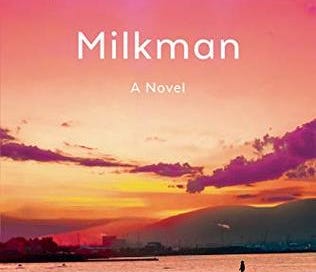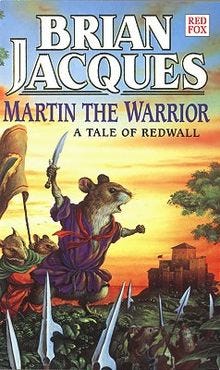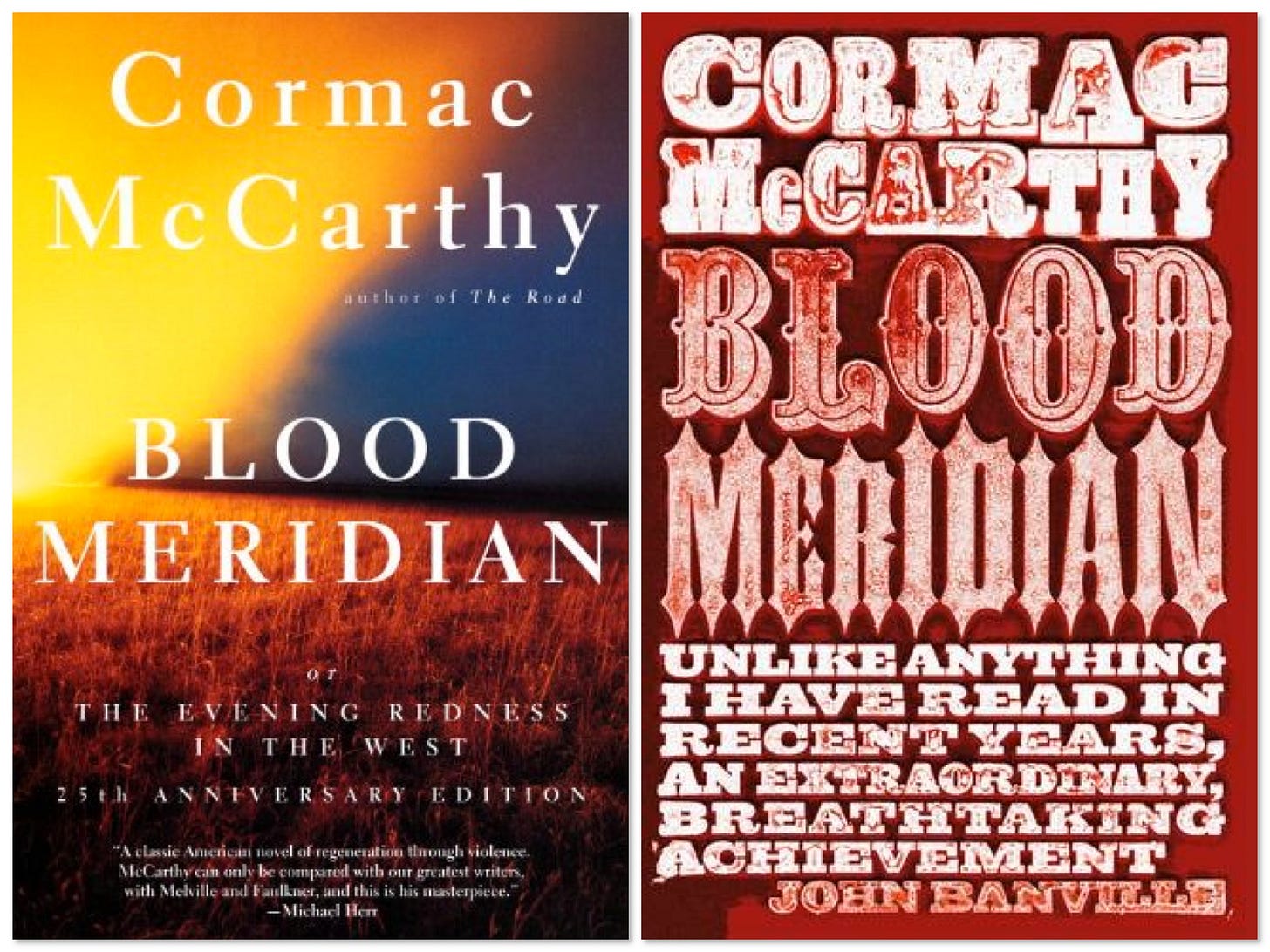Estimated reading time: 6m 10s.
Many years ago, in the prime of my youth, reading was my first love.
I would read for hours on end, emerging from my literary cocoon only to eat, sleep, and try to get past the SafeSearch on my parents’ computer.
(Top tip: searching “voluptuous” followed by any girl’s name was always guaranteed at least one glamour model with her mammaries exposed.)
My first love was the Redwall series by Brian Jacques.
That was followed, naturally, by Harry Potter.

I would churn through books like Trump did security aides, and this persisted right until I was about 22.
Since then, unfortunately, the ability to immediately watch any movie or TV show that has ever existed, ever, instantly, on my phone, has severely impaired my output.
That there are only five books reviewed here from over six months of “reading” is testament to that.
(I also read about 20 comic books a week, but I’ve been assured that this is as unimpressive as it is uncool.)
But “reading-shaming” has gotten out of hand. People read one book and post about it on social media, lording it over the rest of us and making non-readers feel bad.
It has to stop.
Anyway, here’s my blog about all the books that I’ve read.
Time for some reviews!
This week: Romance, intrigue, and what in God’s name is a crawdad.
🥛 My milkman brings all the girls to the yard.
Milkman (2018), novel, written by Anna Burns.
Anna Burns’ Milkman is very well regarded, but for the first 100 pages it’s hard to know what she’s even on about.
The novel has a unique style, first person that borders on stream of consciousness. Dialogue is rarely relayed verbatim, but told as if it was someone remembering the key points of a conversation.
Characters aren’t named, but instead boiled down to a title that focuses on their perceived identity to the author (i.e. “maybe-boyfriend”, “little sister” and an annoying local miscreant genuinely called “Somebody McSomebody”).
But as the novel goes on, the author’s intentions are clear. Set during the Troubles in Northern Ireland, every single interaction and relationship is refracted through the lens of political conflict. One is not a person, but a member of a side.
How you are perceived is infinitely more important than who you actually are. Time and time again, the protagonist makes a small gesture (reading a book while walking home, going to a club on her own) that immediately is disseminated among the wider community as being suspicious.
Other things that are suspicious, purely because of the conflict:
What you wear
The type of food you eat
Being in love
Talking to certain people in certain places
The novel’s atmosphere is oppressive. Gradually we feel as suffocated as our young protagonist, who is just trying to get through life without being noticed.
It’s sure to be dissected in university classes in years to come, for its groundbreaking style and the insipid, obtuse way it tackles insipid, obtuse themes.
Look out for: The illuminating, hilarious, heartbreaking passages on mental health. If ordering the wrong thing at the takeaway is cause for gossip, imagine the community’s consternation at an individual’s battle with their own thoughts, or “moods”.
If you liked this: Neil Jordan’s 1992 thriller film The Crying Game is another tale set during the Troubles, with perception and identity at its heart. That’s where the similarities end, but it is a masterful, thought-provoking piece of cinema.
Rating: ⭐⭐⭐⭐
🐴 Wicki-wicki-Wild Wild West.
Blood Meridian (1985), novel, written by Cormac McCarthy.
With a name like that, I always thought Cormac McCarthy was Irish.
Other people I have at one point in time thought to be Irish: Conan O’Brien, Ronald McDonald, Duffy (the singer).
McCarthy is the acclaimed American author of novels like The Road and No Country for Old Men, but Blood Meridian is widely regarded as his best, and one of the great works of American fiction.
Like Milkman, Blood Meridian has irregularities in its prose that make it slightly difficult to get stuck into, no less the interesting punctuation. No quotation marks are used for dialogue, and apostrophes are often entirely left out.
Despite this, one gets the hang of it quickly.
It is a punishing read, not for its difficulty but for its content and subject matter. The novel follows a nameless young protagonist in mid-19th century America, who joins a group of mercenaries and murderers as they pillage their way through Northern Mexico.
The action is incredibly violent and unsettling. As we progress through the novel, it becomes clear that McCarthy’s use of violence isn’t gratuitous but matter of fact — this is just what happened. We’re not glorifying it, but also we won’t deny that these were bad men.
McCarthy’s detailed, detached prose is all the more horrifying for this lack of judgement. We the readers understand the magnitude of the men’s actions simply because we have morals, and we can recognise the difference between right and wrong.
This is unlike the men and the novel itself, who all remain apathetic throughout.
One might hope for something more hopeful or inspiring from a Great American Novel", but in terms of sweeping scope and writing, Blood Meridian is a masterpiece.
Look out for: The character of Judge Holden is truly, truly terrifying. It’s a lot harder to make someone laugh, cry or feel fear through the written word than through film, but every time this deranged, intellectual, imposing party member was on the page, I was quaking in my size 10.5 Converse.
If you liked this: Of the many works to lay rightful claim to the Great American Novel, John Steinbeck’s East of Eden is probably my favourite. Considerably less violent than Blood Meridian, but equally epic.
Rating: ⭐⭐⭐⭐⭐
⏩ Quickies
Short and snappy reviews for a short and snappy time:
Where the Crawdads Sing (2018, novel, by Delia Owens): ⭐⭐⭐
An enjoyable tale from (clearly) first-time author and zoologist Owens. The engrossing plot and fascinating family dynamics are let down by paper-thin supporting characters and childish dialogue. Still, an absolutely wild commercial sensation that’s worth checking out.

Let the Great World Spin (2009, novel, by Colum McCann): ⭐⭐⭐⭐
It doesn’t reach the literary heights that McCann aims for (and his frequent POV changes can be trite) but I absolutely tore through Let the Great World Spin. Well written, moving, believable — and the author is from Dublin (yeet).
Exhalation (2019, short stories, by Ted Chiang): ⭐⭐⭐
Like most short story collections, this selection of science fiction tales is hit and miss. At best, it is a delicate, thought-provoking, extremely clever piece of writing. At worst, it is ill-judged and very boring. Go to a bookshop and just read the beautiful opening story, “The Merchant and the Alchemist’s Gate”.
📃 Quote of the Week(s)
“Being loved back by the person he loved to the point where he couldn't cope anymore with the vulnerable reciprocity of giving and receiving, he ended the relationship to get it over with before he lost it, before it was snatched from him, either by fate or somebody else.”
So much of Milkman is as profound as it is disheartening. In this passage, Anna Burns describes one of the many relationships denied by the conventions of the time, and the almost masochistic self-denial that is regularly practiced.
✅ Th-th-that’s all, folks.
Thank you very much for reading!
If you have shared this blog at some point this year, I am even more grateful. 🥰
If you’d like to share this blog, you can do so by clicking the button here:
The Reel will be back to films & TV in the next edition.
Thanks again, and a Happy, Happy New Year!
xxx
You can find a catalogue of all previous editions of The Reel here.










Good stuff Alex. I agree that Milkman was probably worthy of the hype (and Booker). I might try Blood Meridian but McCarthy's Border Trilogy was so dire that i am a bit reluctant to risk the investment of my valuable time!